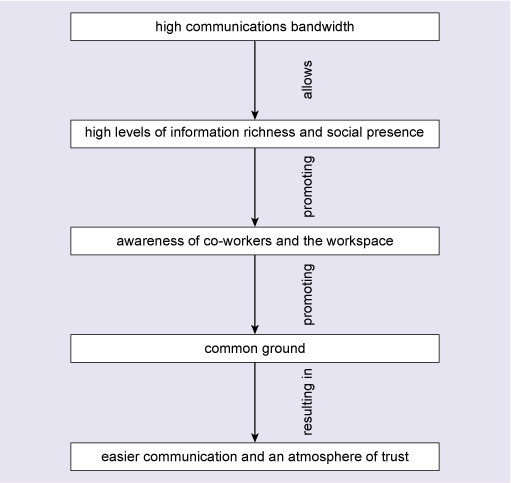2.3 Common ground
A consequence of the natural awareness that collocated team members enjoy, or the provision of software mechanisms that promote awareness, is common ground. Common ground refers to the knowledge that collaborators have in common and are aware that they have in common. Common ground is established by shared knowledge of the object of the work itself, the background and context of collaborators (whether, for example, they are even present), what artefacts they share, and knowledge gained from their appearance and behaviour during interaction. The establishment of common ground is itself often a collaborative process where participants mutually establish what they know to allow a conversation to proceed (Olson and Olson, 2000). The field studies of Olson and Olson demonstrated that it is relatively easy for collocated teams, in contrast to virtual teams, to establish common ground. This is because they share a local and cultural context and knowledge of who is doing what and what remains to be done at any time. The participants are both aware of each other and familiar with each other: communication is easier and an atmosphere of trust is engendered.
The relationship between technological infrastructure, different aspects of awareness and successful team work is illustrated in Figure 1.

